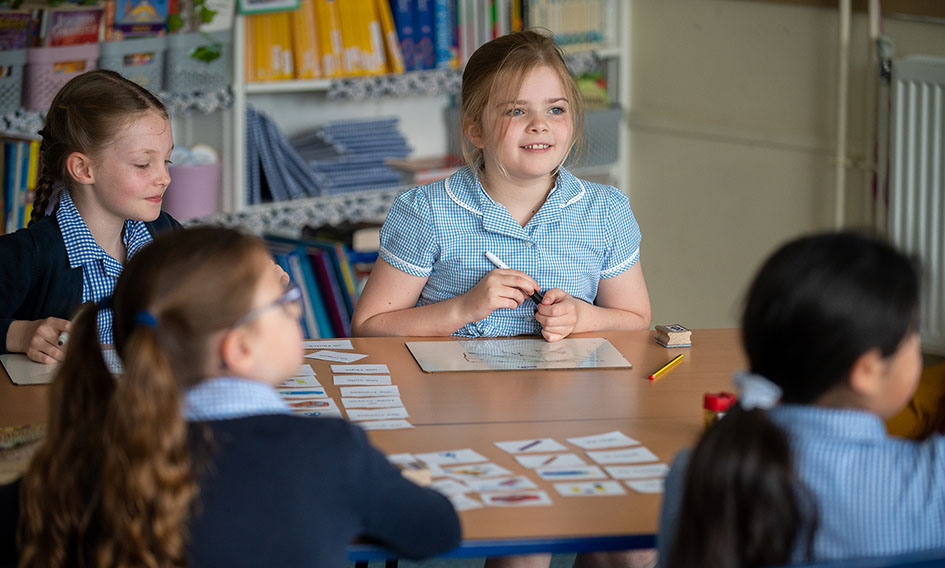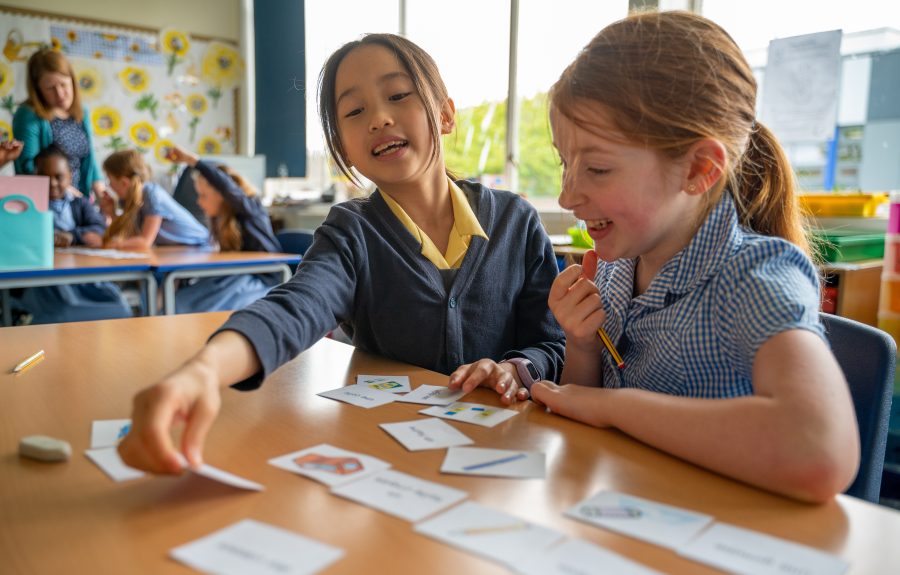
When do girls start learning languages at St Margaret’s? And what languages do we offer?
Girls start to learn French from a very young age, in 1 Junior, and this language continues to be part of their core curriculum at least until the end of II Senior.
In 7 Junior girls are introduced to Latin, and in I Senior they have the option of taking up Spanish or German as an additional language. All girls are encouraged to study at least one language other than English at National 5 level.
What are class sizes like as you go up through the school when learning a language?
Especially in V and VI Senior, girls who choose to study either a modern foreign language (French, German or Spanish) or Latin generally benefit from being in small classes of like-minded girls who share a love of language learning. Where possible we will endeavour to run a class even for one interested pupil at Higher or Advanced Higher level where staffing permits!
Why is it important to learn a language?
Learning a foreign language helps you focus on the mechanics of language in general - grammar, conjugations, and sentence structure – and helps you make progress in your native language. Of course, not to be underestimated are the benefits of having increased job prospects, the ability to communicate with local people whilst on holiday and of developing greater cultural awareness.
What are the advantages of foreign languages trips?
At St Margaret’s girls are fortunate to be offered many and varied opportunities to travel to different countries. For those girls studying either a modern or classical language there is no substitute for being able to immerse yourself in that country or culture rather than just hearing about it through the medium of the classroom. If you are learning French, German or Spanish, spending time in a country where that language is spoken will allow you to see first hand that the skills you have acquired in lessons really do serve you well in real life.

What do girls gain from exchange trips?
Most of all, the opportunity to participate in an exchange visit really affords girls the chance to become even more fully immersed in the language and culture than they would in a group visit to the country. Being able to stay with a family, be part of their life for a couple of weeks, and attend a school that may be very different to our own, helps promote improved linguistic competency, cultural awareness and tolerance. It also allows girls to develop increased confidence and independence – very important life skills as they prepare for their future beyond school.
Language speaking exams fill me with fear! How do you help the girls prepare for these?
Yes, the oral assessments can be daunting but we aim to develop girls’ confidence during lessons with regular practice and a good deal of supported preparation for specific tasks. The skills of reading, listening and writing also feed into the development of improved ability in talking. We are fortunate at St Margaret’s to have regular input from our foreign language assistants who work with the girls to increase their confidence in speaking.
Learning languages can open up many doors – what different career paths are on offer if you study a language?
People immediately think of interpreting and translating, the diplomatic service or international organisations such as the UN but enhanced career opportunities are many and varied to those who are able to offer a language within their skills portfolio. From teaching to tourism, though journalism, engineering, law, business – the world is your oyster if you have studied one or more languages either as your main discipline or as a subsidiary subject.
In short, knowledge of a modern language increases your job opportunities with British and foreign companies in your own country and abroad. Proficiency in a language other than English helps you to function productively for an employer with global business connections.


